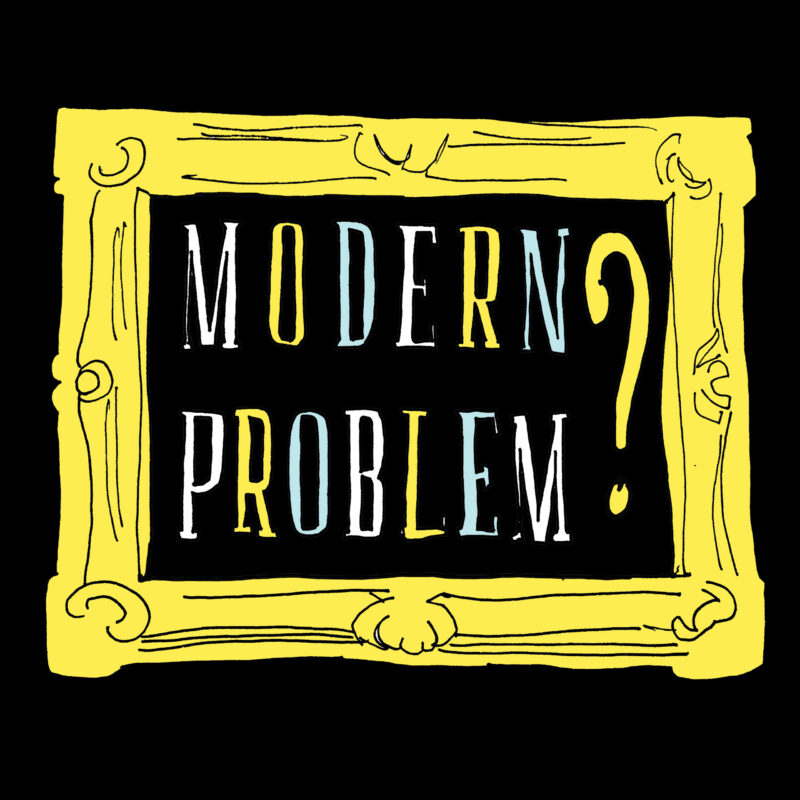
Jane McNamara, a journalist and broadcaster originally from Co Mayo, has just released her first podcast, Modern Problem. The first three episodes of the podcast are online now, and they focus exclusively on the system of direct provision in Ireland – including nuggets about when the issue made its way onto Trinity’s campus.
Speaking to The University Times, McNamara explains that she decided to create the podcast because there simply wasn’t enough accessible, straightforward information on direct provision. “I first came up with the idea to cover it when I was working in news in a radio station in Cork, and I was covering it in the bulletin, and I just ended up having more questions than answers.”
After looking into the system, she discovered that “there didn’t seem to be one place you could go to that explained the system and why it came about and the reality of it”. McNamara then created the resource that is Modern Problem, conducting research and providing an invaluable source of information for the average person.
Undoubtedly, if you are a student in Trinity, you’ve heard about direct provision. McNamara knows that many students already hold strong opinions on the subject, but, she says, it’s the kind of issue that “you’ve heard about and are familiar with, but when you’re actually asked to elaborate, you’re kind of stumped”.
For Trinity students in particular, this rings true.Trinity College Dublin Students’ Union (TCDSU) has been extremely vocal about the direct provision.
You’ve heard about and are familiar with, but when you’re actually asked to elaborate, you’re kind of stumped
In the first episode of the podcast, McNamara remarks on Trinity’s relationship with Aramark, a company that profits from the system: “When the connection to direct provision became known to students … there were protests. In January 2020, the Trinity newspaper The University Time reported that Trinity’s Hamilton Cafes had cut all ties with Aramark.”
For the average student – or at least, for me – direct provision is a phrase that echoes around campus, not a system that is understood in all its complexity. This is why McNamara’s new podcast, edited by current Trinity student Ellie O’Neill, is so important for Irish students.
The first episode of the podcast acts as an “explainer”. McNamara makes a deliberate point of going “back to the beginning and telling the story” of how direct provision came into existence.
For the average listener, this will likely be the first time they’ve heard a clear, straightforward description of how and why direct provision exists in Ireland. McNamara then goes on to outline “the eight things you need to know about direct provision”. Deciding what these eight things should be was a challenge for McNamara. After interviewing countless academics, asylum seekers and people on the streets of Galway and Dublin, McNamara had 30 hours of audio, and had to narrow this huge volume of material down to a digestible, 37-minute podcast episode.

The logo for the podcast.
In the end, she came up with a simple strategy for deciding what the essential information should be: “When deciding on those eight things, I realised that they were more or less the things I was repeating to my mam on the phone after doing interviews. You know when you hear something, and you’re told you remember ten per cent of it? It was pretty much those parts of interviews that I was repeating and telling people afterwards.”
The first episode of the podcast is informative, straightforward and clean. McNamara says that “if you listen to this 37 minutes, you will understand direct provision. That’s your money-back guarantee”, and she’s right. The podcast doesn’t contain any filler. Every sentence is used to convey information that should be common knowledge for everyone in Ireland. She outlines the brutality of the deportation process, the barriers facing asylum seekers when it comes to the right to work, and the horrors of sexual harassment for women and girls in direct provision.
Because McNamara takes the time to provide a history of direct provision before she explains its details, and because she allows academics and asylum seekers alike to explain the issues in the system from positions of expertise and experience, the podcast provides a rich, detailed picture of the system. Moreover, because the podcast is evidently well edited and well produced, it remains succinct and clear.
By providing so much detail while maintaining an accessible tone, Modern Problem does what many news sources have failed to do. MacNamara explains: “A lot of the newspaper articles would begin with this presumption that the reader had a certain amount of information, and it just was going over my head. And I’m a pretty average person, and I thought: ‘This is possibly one of the reasons why people are not informed.’” She continues: “If you were to just read the headlines, or hear the news, you would just leave it at that.”
For McNamara, although Modern Problem has been a “passion project”, it is anything but self-indulgent. Throughout the series, McNamara refrains from giving her own opinion. She lets academics and asylum seekers speak for themselves, and she doesn’t push an agenda. “I’m very conscious that I don’t want to inject my own personal opinion too much into this interview or into the podcast, just because I think the facts are shocking enough, and I think the facts are important enough. That’s all I want people to get from me. My sole aim for this was to just get the facts and present them to people, and whatever they want to do with those facts then is fine, but this kind of like confusion and lack of clarity is helping nobody.”
A lot of the newspaper articles would begin with this presumption that the reader had a certain amount of information, and it was going over my head
In the second episode of the podcast, an anonymous asylum seeker tells his story in great detail. While the first episode provides an overview of the system, the second provides an in-depth look at the life of one family. This kind of variation in focus, which creates space for the big picture and the individual, provides a vivid impression of a system that thrives in its obscurity.
Put simply, McNamara wants the public to know the facts about direct provision, because “bad things happen when we don’t understand what’s going on”. Irish students, in particular, she believes, would be much more vocal about direct provision if they understood the system: “We’ve seen the appetite for justice when it came to the marriage referendum and the repeal campaign and this is such a big topic, and I know that Irish students, if they knew more about it, would have more of an opinion.”
By simply assembling and presenting the facts, McNamara has created a factual, simple podcast. However, for all its simplicity, it is extremely moving. Like McNamara, repeating parts of interviews on the phone to her mother, I have found myself repeating parts of the podcast to family members.
The facts are unbelievable, and they finally exist in a succinct, accessible format. Modern Problem is available now on Apple Podcasts, Spotify and Stitcher. Every student in Ireland should listen.






